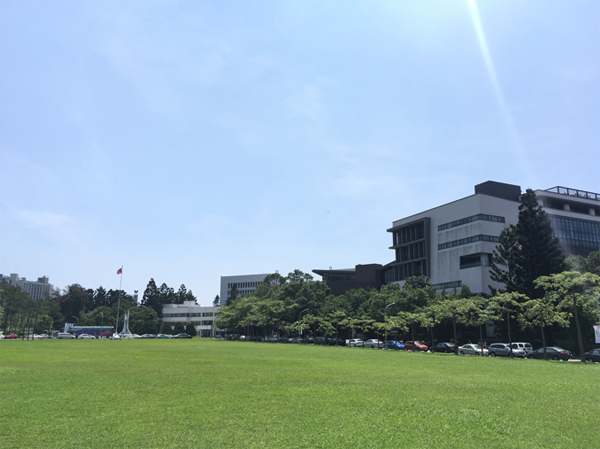A week out of town
Kelvin Wong
The airport express to Taipei city passed through a valley. The windows on both sides were filled with different shades of green. There were acacia trees, the only kind I recognised, with pinnate leaves, tipped with tiny yellow flowers. This species is commonly used for forestation and can easily be found in country parks and around reservoirs. They were called green giants when I was young. When wind passes by, they are like big people waving hands and chattering with one another.
I was on a trip to attend an applied linguistics conference in Hsinchu, at the same university I went to on exchange three years ago. Before heading down south to the town where the university is located, I stayed in the city for some shopping and strolling. I bought some overpriced Chinese herbs and pineapple cakes there for my mom. Another day I went searching for a local breakfast place. There was one a few blocks away from where I was staying that looked rather shabby and had no name I could discern. Having local breakfast is one of the must do’s in Taiwan, apart from riding a motorcycle. I ordered two hash browns, an omelette, a ham-and-cheese sandwich and soybean milk. (The authentic Taiwanese sandwich has salad cream and cucumber slices.) All this cost only twenty Hong Kong dollars. I could not have been more thrilled—but I was aware that the national median income had fallen last year.
Hsinchu is about an hour drive from Taipei city. The town is one of the windiest across the island. People there seem to have their hair messed up and hats blown away all the time. The town is also famous for rice vermicelli—a kind of thin noodles. There is a place near the main temple selling fried vermicelli with shredded duck meat and marinated vegetables. You can order a sunny-side-up egg on top and have the yolk soak into the noodles. But I couldn’t find the place this time. I got lost.

There is a huge grassy area in front of the university library. It always reminds me of the tiny garden plots on centennial campus. Cotton trees are planted around the library lawn. They have straight tall trunk and simple limbs, with leaves fallen in winter and cup-shaped red flowers blossomed in spring. It was in the middle of May when I returned to the university—all the flowers must have fallen down. I wondered if students collected the flowers and arranged them in words, just as what we did three years ago. The fruits were hanging on the branches and the sky was filled with white cotton fibres. I stopped breathing for a while not to let them get into my nostrils. This reminded me of the news back in Hong Kong when people actually covered cotton capsules with plastic bags.
The conference went well. I presented a paper and helped a little at the registration counter. It was interesting that some people in the field on the one hand advocate the protection of endangered and minority languages, but on the other hand endorse the universality of English and disregard the communicability of creolised varieties. I did not attend the banquet but instead went to a dessert place with my friend. The old lady selling dumplings and red bean soup around the corner seemed to be doing fine.
As I took the shuttle back to the capital that night, I could not help but wonder—why is the grass always greener on the other side?

Our apologies, you must be logged in to post a comment.